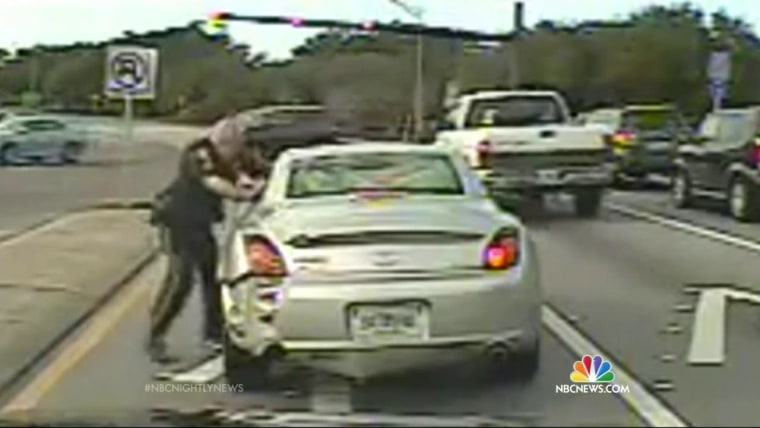Laws that make it a crime for drivers to refuse a blood alcohol test, even when the police don't have a search warrant, seemed in trouble after arguments before the U.S. Supreme Court Wednesday.
At issue are laws in 13 states that criminalize refusing to submit to a test of a driver's breath, blood, or urine for the level of alcohol. The challengers, drivers arrested for being drunk who refused to take the tests, argue that the laws are unconstitutional for tests conducted without a search warrant.
Without the authority to punish drivers who refuse blood alcohol tests, the states say there will be more drunk driving fatalities.

The justices at first seemed sympathetic to the states. Justice Anthony Kennedy noted that all states now can punish drivers who refuse the test by levying fines or suspending their licenses to drive.
Related: Periscope User Whitney Beall Sentenced for 'Driving Home Drunk'
He asked, "If the State can impose a civil administrative sanction, why couldn't it also impose a criminal sanction? Why should there be a difference?"
But lawyers for Minnesota and North Dakota, defending their laws from challenges in the lower courts, ran into a barrage of questions from nearly all the justices who wondered why it was so hard to get search warrants quickly, given that many states now have magistrates available 24 hours a day to respond.
"It's not that you don't have an out," said Justice Sonia Sotomayor. "The issue for us is, do we dispense with a very important requirement in our law, that before you search particularly the inside of a person with a needle or in an intrusive way, that you get a warrant?"
Related: Drunk driving repeat offenders - Video on NBCNews.com
The justices seemed surprised to learn that even most breathalyzer tests are given at the police station, not at the side of the road where the driver was stopped.
"If you're taking them to the police station anyway to do the breath test, and it just requires a phone call to get the warrant, what's the problem?" asked Justice Stephen Breyer.
All states have what are known as implied consent laws. A person applying for a driver's license must agree to take a blood alcohol test when a police officer has probable cause to believe a driver has been drinking.
The case before the Supreme Court involves implied consent laws that go a step further, by making the refusal to take a blood alcohol test a crime.
Wednesday's courtroom argument suggested the court could be searching for a compromise, requiring search warrants for blood tests but not for breathalyzer tests.
Justice Elena Kagan said a breath test is "about as uninvasive as a search can possibly be."
A decision is expected by late June.
